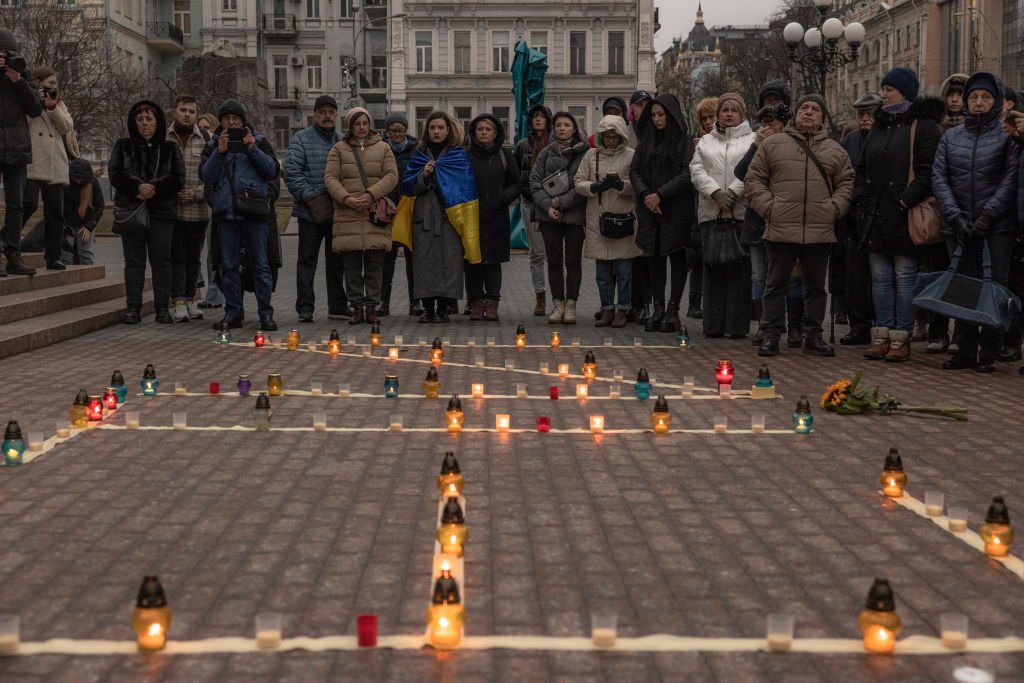
Freedom of association
UN Report: Civilians systematically threatened, detained and tortured for supporting Ukraine
A recent report by the Office of the UN Commissioner for Human Rights (OHCHR) published in March 2023 highlights the most serious violations of the rights and freedoms of Ukrainian citizens during Russia's protracted war against Ukraine. According to the report, this extended conflict has affected a wide range of rights and freedoms, including freedom of association, assembly, expression and religion. The report includes data on human rights violations for the period from August 2022 to January 2023.
Experts tasked with documenting these violations found that civil society space in the occupied Ukrainian territories has continued to shrink as new laws have been introduced in Russia prohibiting “foreign agents” from working in public service or educational institutions and from organising public gatherings. The Russian authorities have illegally extended the application of these laws to the newly occupied territories of Ukraine. As a result, many journalists and media workers have been unjustly detained and their offices subjected to unannounced inspections.
During the reporting period, the OHCHR documented ten cases of enforced disappearances and arbitrary detention of journalists, media workers and human rights defenders in the territories occupied by the Russian Federation. The vast majority of these violations occurred before the reporting period but were documented only after a delay, often after Ukrainian armed forces had regained control over the areas where they occurred. Civilians who spoke out in public or on social media in support of Ukraine, as well as civilians belonging to Ukrainian political parties, were "systematically threatened, arbitrarily arrested and detained, tortured and ill-treated." Those who spoke out against the war were often accused of displaying “extremist” symbols. Another group persecuted are members of certain religious minorities whose confessions are banned on the territory of the Russian Federation. These include Christian evangelical communities, Baptists and representatives of the Catholic Church.
Freedom of peaceful assembly
Protest to rename the Ukrainian National Music Academy to remove reference to Russian composer
On 16th March, protesters gathered in Kyiv's Independence Square in front of the Ukrainian National Tchaikovsky Academy of Music to demand that the educational institution be renamed, specifically to remove the name of Russian musician Pyotr Tchaikovsky.
The demonstrators had announced the protest action on social media the day before. In addition to the renaming, the organisers also want Russian symbols removed from the walls of the academy. This action is part of a larger movement aimed at reaffirming the Ukrainian people's own cultural identity. In addition, the demonstrators demanded the reinstatement of teachers who had previously resigned due to disagreements with the administration's decisions.
The demonstration began with the playing of the Ukrainian national anthem, followed by other songs. Around one hundred people took part in the protest. According to the news website Rybryka, the administration of the National Academy of Music of Ukraine did not react to the action and did not respond to the participants’ demands.
Студенти і викладачі Київської Музичної Академії протестують проти керівництва, яке не прибирає Чайковського з імені закладу. Відео музичної оглядачки УП.Культура Наталки Писанки. #кризавконсерваторії #консерваторія pic.twitter.com/hhAm9A72JX
— УП.Життя (@UPZhyttya) March 16, 2023
Freedom of expression
More than 500 crimes against journalists so far during the Russian war in Ukraine
In 2022, the Institute of Mass Information documented 567 cases of violations of freedom of expression in Ukraine. Of these, 470 violations were attributed to Russia, while 97 were attributed to the Ukrainian side.
Violations for which Ukrainian citizens are responsible include obstructing legal journalistic activities, restricting access to public information and violating digital rights, as well as threats, physical attacks and political pressure, according to the Institute. Among the most high-profile violations were the closure of the Pryamiy, Channel 5 and Espresso channels.
In the 12 months since the start of the full-scale invasion, Russia has committed 497 violations against journalists and media outlets in Ukraine. In February 2023 alone, four journalists or employees of various media organisations lost their lives due to the ongoing conflict. According to IMI, Russian forces killed 43 media workers on Ukrainian territory during the course of 2022. Eight of them were killed in the line of duty, while 35 died as combatants or otherwise not in the course of their journalistic work.
In January and February, three film crews came under fire from Russian forces in the area surrounding Bakhmut in Donetsk oblast: one Ukrainian team ("Zaborona") and two international teams from "Česká Televize" and "Bild". As Ukrainian war correspondent and "Česká Televize" fixer Anastasia Zhuk told IMI, they were deliberately attacked by the Russians, although the journalists and their vehicles were clearly marked with "PRESS" stickers. Before the attack, a drone had hovered over them. According to Zhuk, the journalists were unharmed but understandably shaken.